As the initial excitement and tears of joy subsided, India’s celebration of their T20 World Cup victory kicked off in full swing. Leading the festivities were Virat Kohli and Arshdeep Singh, who showcased a vibrant display of Punjabi culture by dancing to the iconic song “Tunak Tunak Tun”. The duo, adorned with their winners’ medals, performed traditional bhangra steps and were soon joined by teammates Axar Patel, Rinku Singh, Mohammed Siraj, and Jasprit Bumrah in the spirited dance.
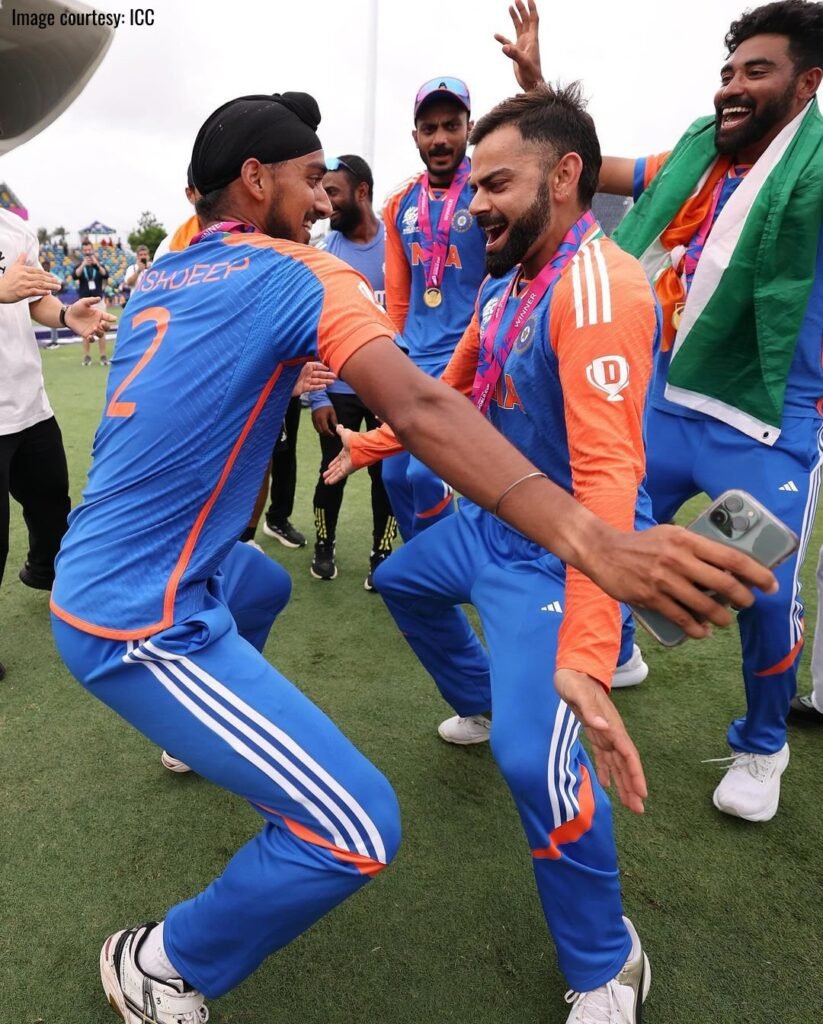
Virat Kohli, who had struggled during the group stage, Super 8s, and semifinals, delivered an outstanding performance in the final, scoring 76 runs off 59 balls. Kohli’s crucial innings, along with significant contributions from Axar Patel, who made 47 off 31 balls, and Shivam Dube, who scored 27 off 16 balls, helped India set a competitive target of 176 for 7 against South Africa.
In the final’s crucial moments, Arshdeep Singh played a pivotal role by bowling a crucial 19th over that conceded just four runs. His performance included dismissing key South African players like Quinton de Kock and Aiden Markram, finishing with figures of 2 for 20. Hardik Pandya also made a significant impact with his three-wicket haul for 20 runs, which included dismissing South Africa’s top scorer Heinrich Klaasen and David Miller, with Miller being dismissed after a spectacular catch by Suryakumar Yadav.
Indian cricketer Arshdeep Singh’s coach, Jaswant Rai, expressed satisfaction with Singh’s performance and the overall strength of the Indian bowling attack, highlighting Singh’s composure and effective variations in his bowling. Rai’s praise reflects the confidence in Singh’s contribution to India’s success in the tournament.
Regarding the retirement of Virat Kohli and Rohit Sharma from T20 cricket, Rai acknowledged that their decision was beneficial for the team’s future. He noted that their retirement opens up opportunities for younger players, while also recognizing Kohli and Sharma’s role as role models for the next generation of cricketers.
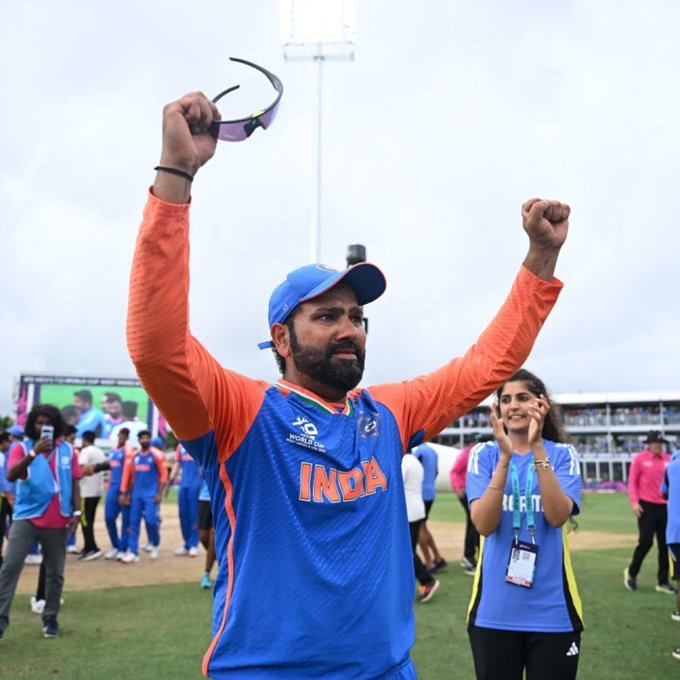
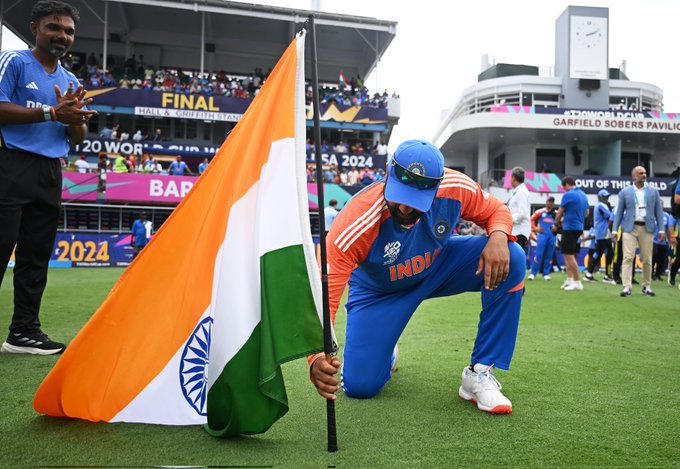
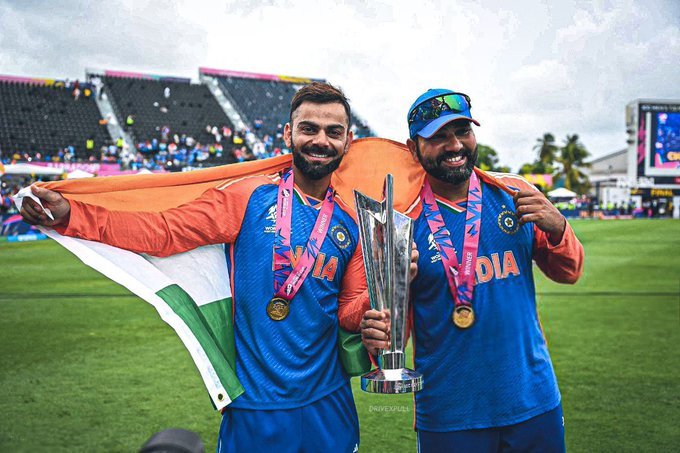
As the team looks ahead, the blend of experienced players like Kohli and Sharma, who will continue to play in One Day and Test cricket, and emerging talents like Arshdeep Singh and others, promises a bright future for Indian cricket. The victory not only marks a significant achievement but also sets the stage for further successes, driven by a new generation of cricketers inspired by their illustrious predecessors.

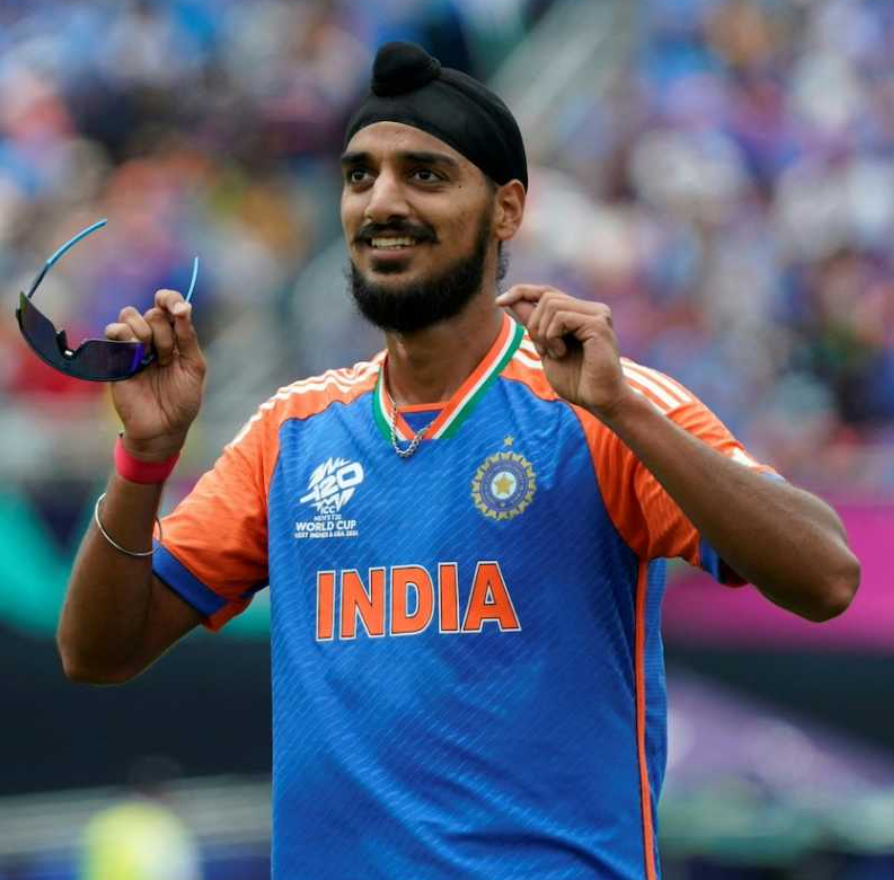
In conclusion, India’s T20 World Cup victory is a testament to the team’s resilience, skill, and the seamless integration of tradition and modernity, both on and off the field. As celebrations continue, the focus now shifts to sustaining this momentum and nurturing the upcoming talent to ensure that Indian cricket remains at the pinnacle of international competition.

